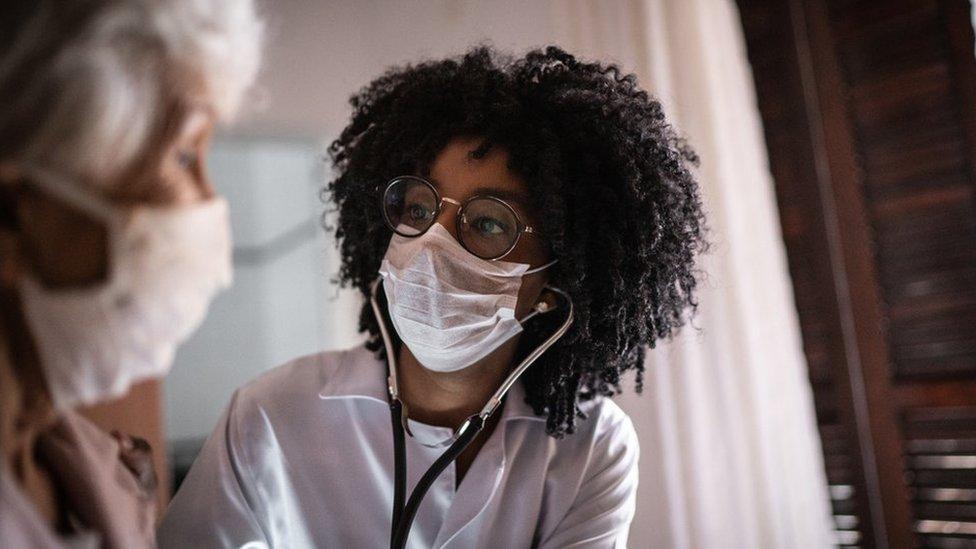Sir Lenny Henry's open letter urges black Britons to take Covid vaccine
- Published
Sir Lenny Henry: "We don't want anybody else to die"
Sir Lenny Henry has written an open letter urging black Britons to take the Covid-19 vaccine.
The comedian and actor said people should "trust the facts" and guard against misinformation.
The letter has been signed by high-profile figures such as actor Chiwetel Ejiofor, YouTube star KSI and actress Thandie Newton.
Vaccination rates among black Britons are considerably lower than among white Britons.
According to the latest figures from the Office for National Statistics, vaccination rates for people in England identifying as having black African heritage stand at 58.8%, the lowest among all ethnic minority groups, and 68.7% within the black Caribbean community.
By contrast, for people identifying as white British, there is an estimated take-up rate of 91.3%.
By ethnic minority in England
58.8%people identifying as black African
68.7%among black Caribbeans
91.3%people identifying as white
The disparity exists despite a widespread study suggesting black people are twice as likely as white people to catch the coronavirus.
Asked why there was caution in the black community about having the vaccine, Sir Lenny blamed an "element of mistrust" in the system.
He said people felt "certain institutions and authorities haven't particularly done right by the black community in the past" so asked "why should they do something for us now? Why are they doing us all a big favour?"
Sir Lenny's letter, addressed to "mums, dads, grandparents, uncles, aunties, brothers, sisters, nephews, nieces, daughters, sons and cousins", recognises these historic "legitimate worries and concerns".
But it adds: "We're asking you to trust the facts about the vaccine from our own professors, doctors, scientists involved in the vaccine's development, GPs, not just in the UK but across the world, including the Caribbean and Africa."
The appeal, which is backed by the NHS, has also been turned into a short film directed by Bafta-winning filmmaker Amma Asante.
Allow YouTube content?
This article contains content provided by Google YouTube. We ask for your permission before anything is loaded, as they may be using cookies and other technologies. You may want to read Google’s cookie policy, external and privacy policy, external before accepting. To view this content choose ‘accept and continue’.
Asante told BBC Radio 4's Today programme: "The most important thing for us was to put across a message that for all the divisions that exist, we deserve to be protected and our loved ones deserve to be protected. We don't want to widen divisions and equalities that exist."
The film will be aired on Sky, BT Sport, Viacom, Discovery, A&E and ROK and Channel 5 on Tuesday 30 March from 20:00 BST.
Sir Lenny told BBC Breakfast: "It came together really quickly - within a couple of weeks we were making the film. People were all over the place. We all managed to make this little film with Amma directing us remotely."
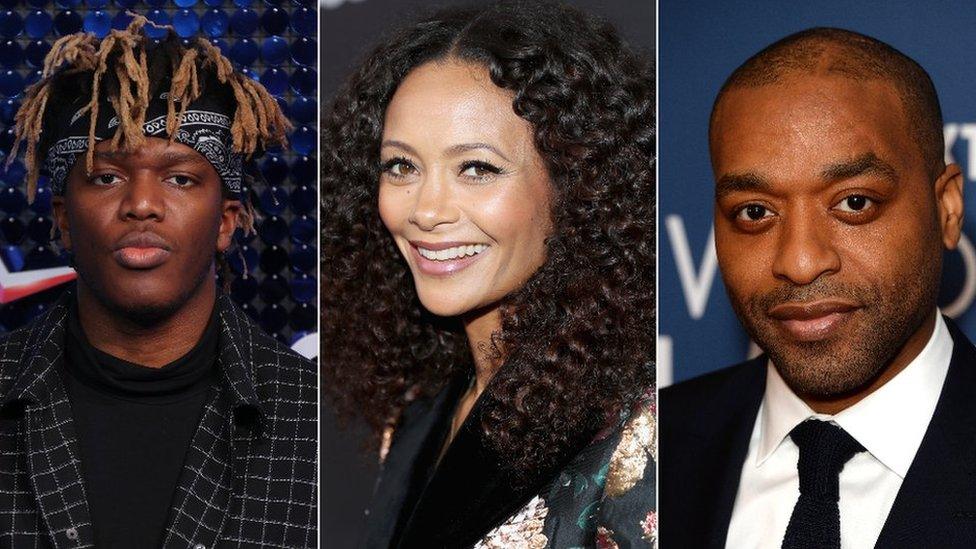
YouTuber KSI, actress Thandie Newton and actor Chiwetel Ejiofor are among the stars to have signed the letter
He described the film, which has a personal feel with the focus on family and friends, as "very moving".
Other signatories include author Malorie Blackman, DJ Trevor Nelson, historian David Olusoga and actors Adrian Lester, Naomi Ackie and David Harewood.
"The vaccine's been tested for all ethnicities. It's safe, it's our way out of the pandemic," Sir Lenny said. "If you're in any way hesitant, talk to a medical professional… trust the experts, don't trust your mate down the pub or conspiracies online. This is serious now. Don't be misinformed.
"Perhaps after there'll be an opportunity to rebuild our trust in authority and institutions but for now… take the jab."
BBC Reality Check debunks five false vaccine claims
The comedian also spoke about his own experience of getting the jab.
"I did find it emotional," he said. "Because of lockdown, I've not been out very often, I talked to this poor doctor there [for ages] - they were like, 'The jab happened 10 minutes ago, can you leave now!'"
He added: "The staff are so brilliant, they explain things, they want you to feel comfortable, they're really good people. Any trepidation is misinformed. It's over so quickly, it doesn't hurt, it's a cool thing to do."
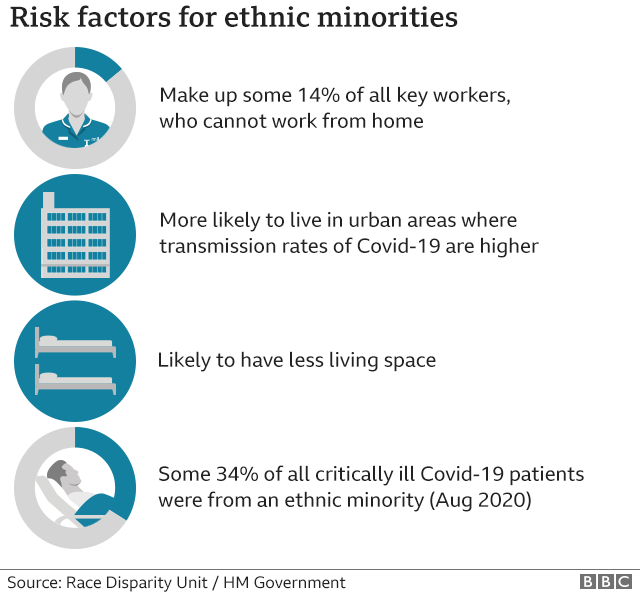
The Comic Relief co-founder also used the launch of the letter to address government intervention.
Asked if the UK government had done enough to build up the trust of the black community, Sir Lenny told the Press Association: "They waited and that's why we're in this terrible situation, so it's a bit ironic to accuse the black community of hesitating.
"There are mitigating circumstances to the trust and the lack of take-up and those things need to be mended before people can move forward, and we're doing our bit to do that and perhaps the government needs to do the same too.
"My thing is, we're all in this together. Black, white, Asian, whatever, we're all in it together. We all want our families and our loved ones to survive."
Earlier this year, British Asian celebrities including comedians Romesh Ranganathan, Meera Syal and cricketer Moeen Ali made a video urging people to get the Covid vaccine.
Fake news about the vaccine, particularly in the South Asian community, has led to concerns about uptake.
Adjoa Andoh: "We want everybody to be protected and safe."

Follow us on Facebook, external or on Twitter @BBCNewsEnts, external. If you have a story suggestion email entertainment.news@bbc.co.uk, external.
- Published10 December 2020
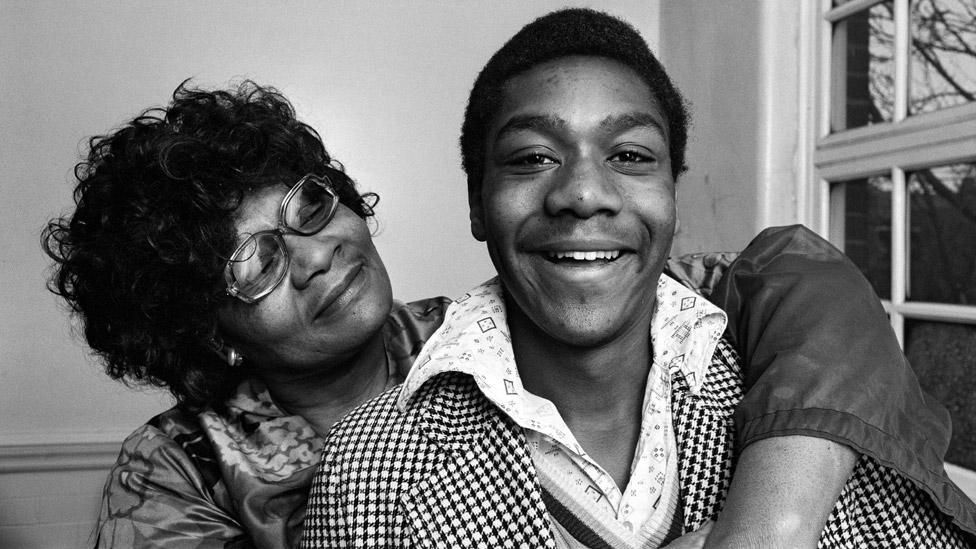
- Published28 January 2021
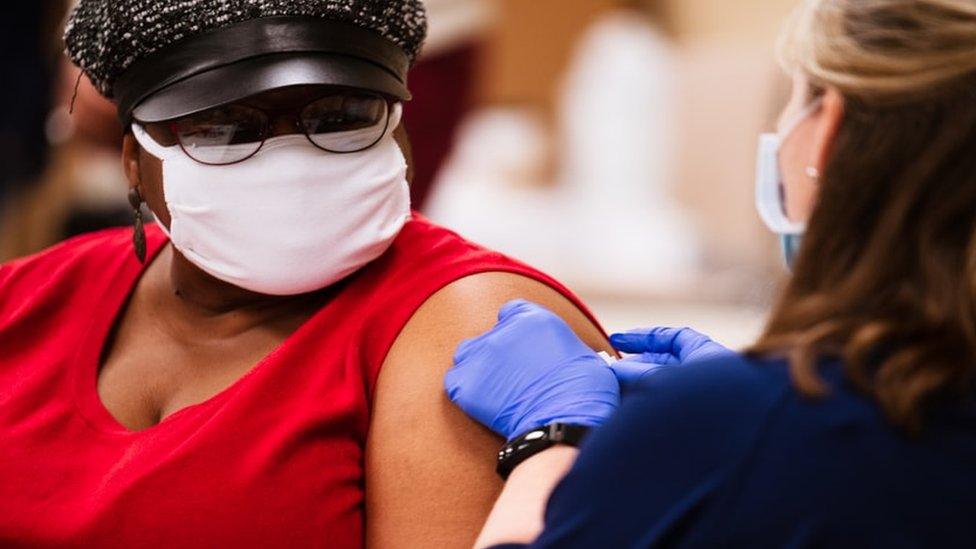
- Published28 January 2021
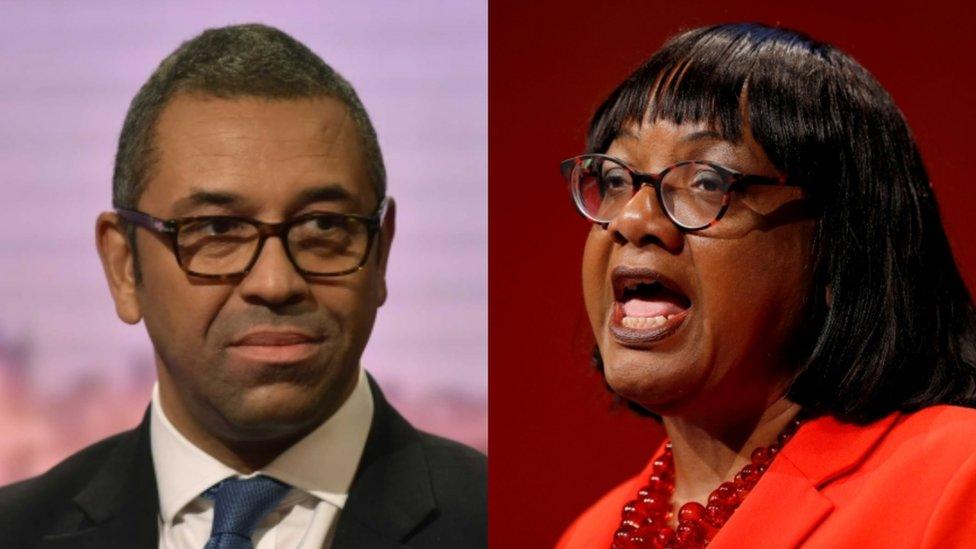
- Published12 November 2020
